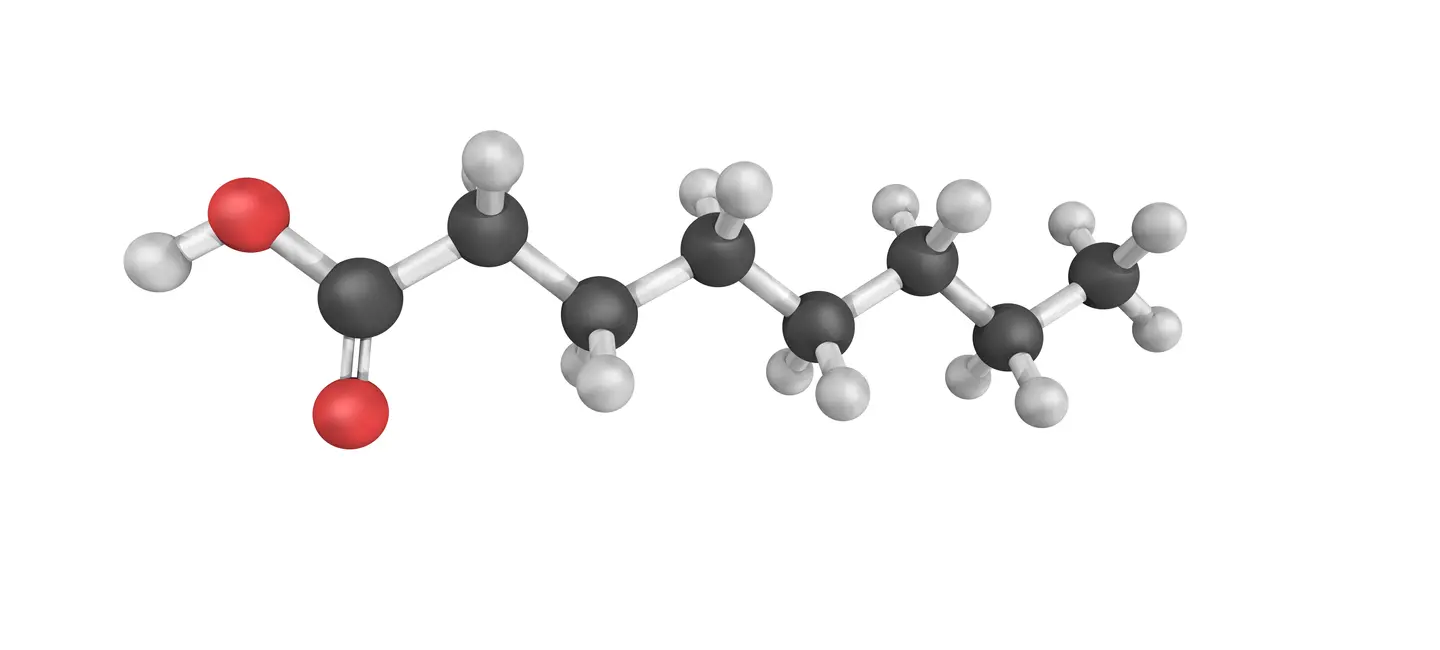
Caprylic acid (octanoic acid) is a medium-chain fatty acid that is naturally found in palm oil, coconut oil, and the milk of humans and some animals.
Caprylic acid is a part of medium-chain triglyceride (MCT) products. It might have anti-inflammatory effects.
People use caprylic acid for epilepsy, a nerve disorder that causes uncontrollable shaking (essential tremor), kidney failure, digestive disorders, and many other conditions, but there is no good scientific evidence to support these uses.
Is It Effective?
There is interest in using caprylic acid for a number of purposes, but there isn't enough reliable information to say whether it might be helpful.
Is it Safe?
When taken by mouth: Caprylic acid is commonly consumed in foods. It is possibly safe when used as medicine for up to 20 days. It's usually well tolerated, but side effects might include stomach discomfort and change in taste.
Special Precautions & Warnings:
Pregnancy and breast-feeding: Caprylic acid is commonly consumed in foods. There isn't enough reliable information to know if caprylic acid is safe to use in larger amounts when pregnant or breast-feeding. Stay on the safe side and stick to food amounts.
Liver disease: Caprylic acid is broken down by the liver. People with liver disease might not be able to break down caprylic acid. But it's not clear if this is a major concern. Until more is known, use with caution.
Medium-chain acyl-CoA dehydrogenase (MCAD) deficiency: People with MCAD deficiency are not able to break down caprylic acid. This can lead to increased levels of caprylic acid in the blood, which might increase the risk of serious side effects. Avoid using.
Weak and brittle bones (osteoporosis): People with osteoporosis have weak and brittle bones. Caprylic acid might make bones weaker and more brittle. Until more is known, use with caution.
Medications for high blood pressure (Antihypertensive drugs)
Interaction Rating=Moderate Be cautious with this combination.
Caprylic acid might lower blood pressure. Taking caprylic acid along with medications that lower blood pressure might cause blood pressure to go too low. Monitor your blood pressure closely.
NSAIDs (Nonsteroidal anti-inflammatory drugs)
Interaction Rating=Moderate Be cautious with this combination.
Taking caprylic acid with nonsteroidal anti-inflammatory drugs (NSAIDs) might increase levels of NSAIDs in the body. This might increase the effects and side effects of NSAIDs.
Warfarin (Coumadin)
Interaction Rating=Moderate Be cautious with this combination.
Taking caprylic acid with warfarin might increase levels of warfarin in the body. This might increase the effects and side effects of warfarin. Until more is known, be sure to have your blood checked regularly. The dose of your warfarin might need to be changed.
Herbs and supplements that might lower blood pressure: Caprylic acid might lower blood pressure. Taking it with other supplements that have the same effect might cause blood pressure to drop too much. Examples of supplements with this effect include andrographis, casein peptides, L-arginine, niacin, and stinging nettle.
There are no known interactions with foods.
Caprylic acid is found in foods that contain palm oil and coconut oil.
As medicine, there isn't enough reliable information to know what an appropriate dose of caprylic acid might be. Keep in mind that natural products are not always necessarily safe and dosages can be important. Be sure to follow relevant directions on product labels and consult a healthcare professional before using.
Octanoate, Octanoic Acid.
Information on this website is for informational use only and is not intended to replace professional medical advice, diagnosis, or treatment. While evidence-based, it is not guaranteed to be error-free and is not intended to meet any particular user’s needs or requirements or to cover all possible uses, safety concerns, interactions, outcomes, or adverse effects. Always check with your doctor or other medical professional before making healthcare decisions (including taking any medication) and do not delay or disregard seeking medical advice or treatment based on any information displayed on this website.
© TRC Healthcare 2024. All rights reserved. Use and/or distribution is permitted only pursuant to a valid license or other permission from TRC Healthcare.
